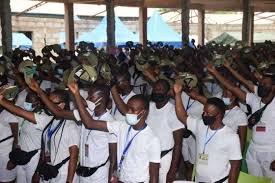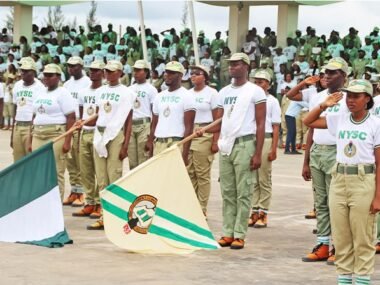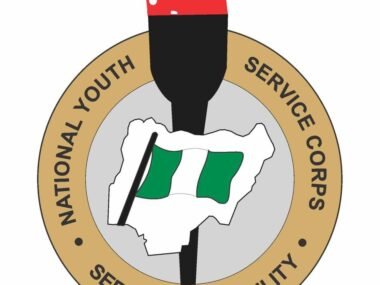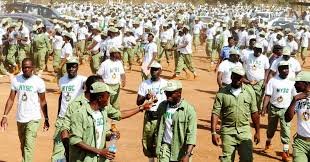On July 29, 2024, the Nigerian Senate, in conjunction with the House of Representatives, passed the National Minimum Wage (Amendment) Act 2024, which included an increase in the National Youth Service Corps (NYSC) allowance from ₦33,000 to ₦77,000, effective from July 2024. This adjustment, signed into law by President Bola Ahmed Tinubu, aimed to align corps members’ stipends with the new ₦70,000 national minimum wage and address economic challenges driven by inflation.
The Federal Government began disbursing the new ₦77,000 allowance in March 2025, following delays due to budgetary and administrative processes. This article provides a comprehensive analysis of the NYSC allowance increment, covering the amount paid, its nationwide implementation, arrears payment, and confirmation of the federal government’s decision.
How Much Is the Government Paying Corpers?
The Federal Government of Nigeria has increased the monthly allowance for NYSC members to ₦77,000, effective from July 2024. This adjustment was formalized following the enactment of the National Minimum Wage (Amendment) Act 2024, signed into law by President Bola Ahmed Tinubu on July 29, 2024. The new allowance represents a substantial increase from the previous stipend of ₦33,000, aligning with the new national minimum wage of ₦70,000. The increment aims to alleviate the financial burdens faced by corps members amid Nigeria’s economic challenges, including an inflation rate of approximately 33% and rising costs of food and transportation.
In addition to the federal allowance, some state governments provide supplementary allowances to corps members serving within their jurisdictions. These state-specific allowances vary significantly:
-
Akwa Ibom: ₦5,000 monthly, in addition to the federal allowance.
-
Lagos: ₦15,000 monthly for the first 100 corps members registered at public schools and ₦10,000 for those at the State Secretariat, subject to a first-come, first-serve basis.
-
Anambra: ₦8,500 monthly.
-
Ebonyi: ₦10,000 monthly (though some reports indicate inconsistent payments).
-
Taraba: A comprehensive package including ₦10,000 monthly stipend, ₦50,000 one-time payment, and ₦25,000 per term for accommodation, totaling ₦395,000 annually for corps members in schools.
-
Sokoto: ₦3,750 monthly, paid as a lump sum of ₦45,000 at the end of the service year.
-
Adamawa: ₦20,000 one-time payment upon completion of service.
However, many states, such as Rivers and Ebonyi (in some cases), do not provide additional allowances, leaving corps members to rely solely on the federal stipend. These disparities highlight the varying financial support available to corps members depending on their state of deployment.
What Is the Current Allowance for NYSC Members Nationwide?
As of March 2025, the Federal Government has officially commenced payment of the ₦77,000 monthly allowance to serving NYSC members nationwide, following delays in implementation. This new allowance is uniform across all states and is disbursed to all corps members, regardless of their place of primary assignment (PPA), whether in schools, government institutions, or other approved organizations. The allowance is tied to the National Minimum Wage (Amendment) Act 2024, which increased the minimum wage from ₦30,000 to ₦70,000, with the NYSC allowance set slightly higher to account for the unique demands of the service year.
The implementation faced significant delays, with corps members continuing to receive the old ₦33,000 allowance until February 2025. The NYSC Director-General, Brigadier General Olakunle Nafiu, confirmed that payments of the new allowance began in March 2025, following the inclusion of the increased amount in the 2025 federal budget, which allocated ₦430.7 billion to the NYSC, with ₦372.9 billion specifically earmarked for corps members’ allowances.
Despite the uniform federal allowance, the total financial support for corps members varies due to state-specific contributions. For instance, a corps member in Taraba or Lagos may have significantly higher take-home pay than one in a state like Rivers, where no state allowance is provided. This variation has sparked discussions about standardizing state allowances to ensure equity.
Are Corpers Going to Be Paid Arrears?
Yes, corps members are entitled to arrears for the period between July 2024, when the new ₦77,000 allowance was approved, and February 2025, when payments of the old ₦33,000 allowance persisted. The arrears, amounting to ₦44,000 per month (the difference between ₦77,000 and ₦33,000), cover eight months (July 2024 to February 2025). The Federal Government began disbursing these arrears in June 2025, with both serving and former corps members who completed their service during this period eligible to receive the payments.
The NYSC Director-General, Brigadier General Olakunle Nafiu, assured that the government has the bank details of all eligible corps members, ensuring that even those who have completed their service will receive their arrears once funds are released.
The Minister of Youth Development, Ayodele Olawande, explained that the delay in paying the arrears was due to budgetary constraints and administrative processes, but the government has since allocated funds to clear the backlog. Social media posts from former corps members, such as @ifeoluwa_X and @pharmacist_shezzy, confirmed receipt of the ₦44,000 arrears, with many expressing relief and gratitude.
However, some corps members, particularly those from earlier batches (e.g., 2023 Batch C), reported not receiving their arrears, indicating that the disbursement is being processed in batches. The NYSC has not provided a clear timeline for when all arrears will be fully paid, but the government has emphasized its commitment to settling all outstanding payments.
Did FG Increase Corpers Allowance?
Yes, the Federal Government increased the NYSC allowance from ₦33,000 to ₦77,000, effective from July 2024, as announced on September 25, 2024, by the NYSC. This increment was driven by the National Minimum Wage (Amendment) Act 2024, which raised the national minimum wage to ₦70,000. The decision was formalized through a letter from the National Salaries, Incomes and Wages Commission, signed by its Chairman, Ekpo Nta.
The NYSC advocated for this increase to reflect the economic realities faced by corps members, with the Director-General, Brigadier General Yushau Ahmed, appealing for improved welfare during a visit to the Commission in August 2024.
The increment was met with widespread excitement among corps members, though initial delays in implementation led to frustration, as evidenced by complaints on social media platforms like X. For instance, @slay_jimmy and @MA_Iliasu highlighted the disappointment of receiving ₦33,000 despite the announced increase. The eventual rollout of the ₦77,000 allowance in March 2025, coupled with the commitment to pay arrears, has restored some confidence in the government’s promises.
The increase is part of broader reforms to the NYSC scheme, including plans to introduce specialized service arms in education and healthcare to address critical shortages in rural areas. Additionally, a reform committee has been proposed to modernize the NYSC, ensuring it aligns with Nigeria’s evolving socio-economic needs.
Conclusion
The Senate-approved increase in the NYSC allowance to ₦77,000 marks a significant step toward improving the welfare of corps members in Nigeria. While the implementation faced delays, the Federal Government’s commitment to disbursing the new allowance and clearing arrears demonstrates responsiveness to the economic challenges faced by young graduates.
The variation in state allowances remains a point of contention, underscoring the need for more equitable support across the country. As the NYSC continues to evolve, including proposed reforms to enhance its relevance, the increased allowance is a positive development that boosts morale and supports corps members in their service to the nation.







